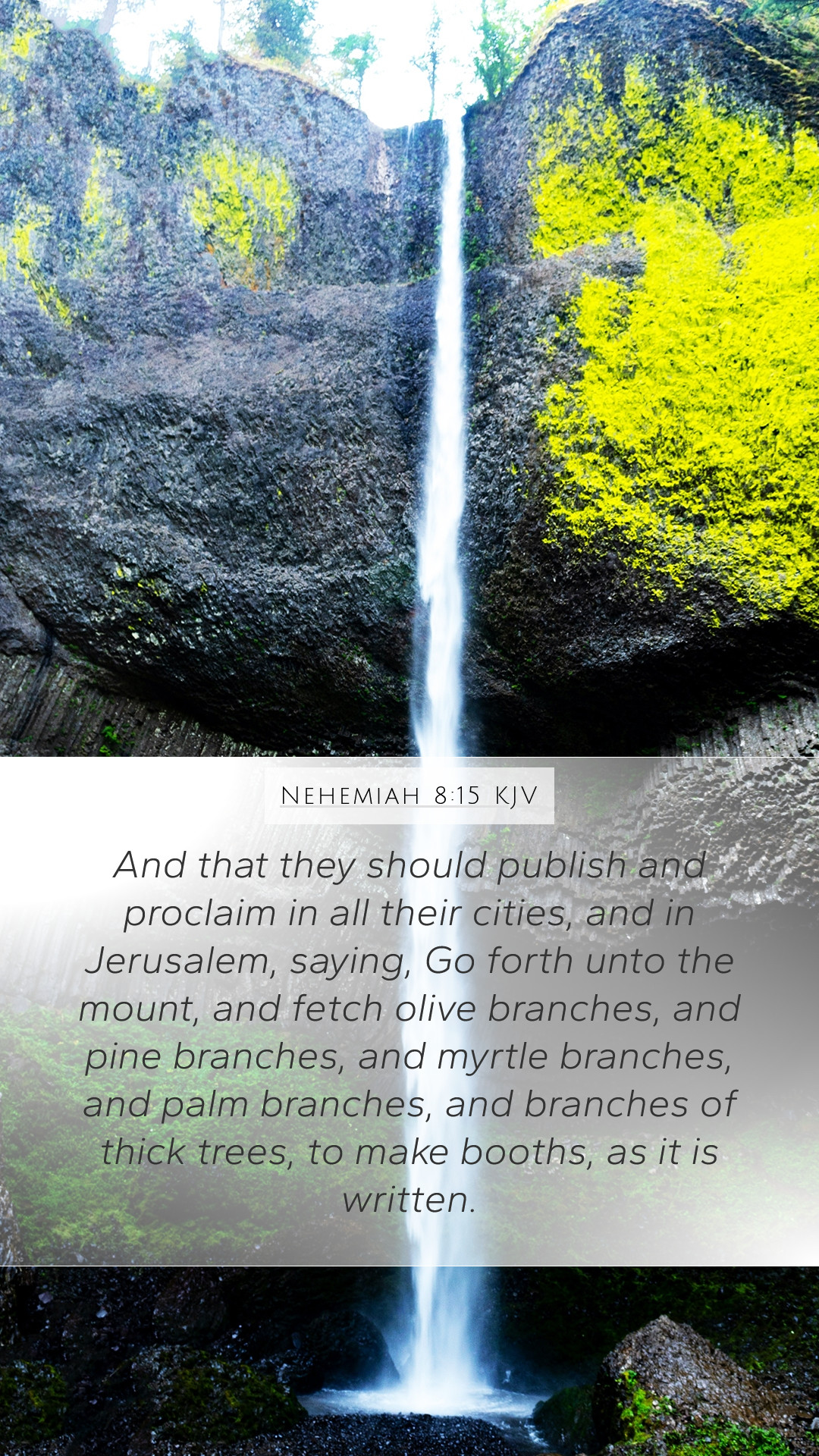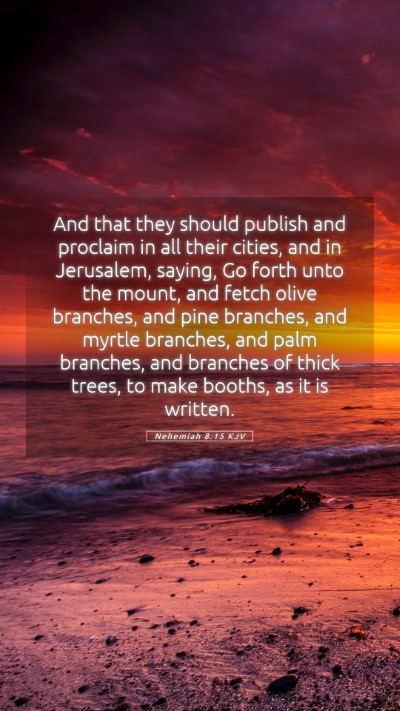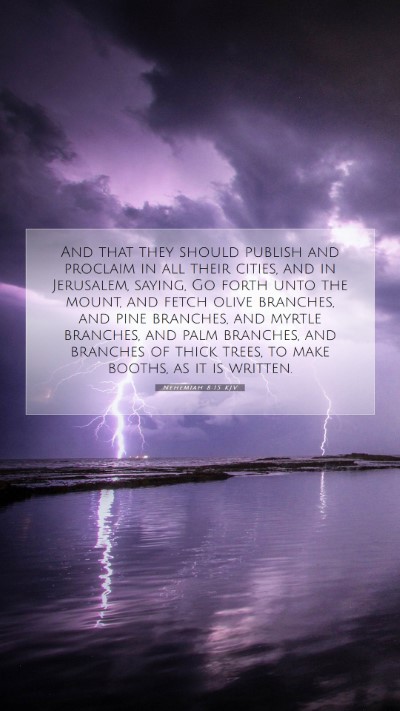Old Testament
Genesis Exodus Leviticus Numbers Deuteronomy Joshua Judges Ruth 1 Samuel 2 Samuel 1 Kings 2 Kings 1 Chronicles 2 Chronicles Ezra Nehemiah Esther Job Psalms Proverbs Ecclesiastes Song of Solomon Isaiah Jeremiah Lamentations Ezekiel Daniel Hosea Joel Amos Obadiah Jonah Micah Nahum Habakkuk Zephaniah Haggai Zechariah MalachiNehemiah 8:15 Meaning
What is the meaning of Nehemiah 8:15?
And that they should publish and proclaim in all their cities, and in Jerusalem, saying, Go forth unto the mount, and fetch olive branches, and pine branches, and myrtle branches, and palm branches, and branches of thick trees, to make booths, as it is written.
Nehemiah 8:15 Bible Verse Meaning
Understanding Nehemiah 8:15
Bible Verse: Nehemiah 8:15
In this verse, we find a significant moment in the history of the Israelites as they return from exile and seek to reestablish their worship and cultural identity.
Verse Context and Background
The context of Nehemiah 8:15 is critical. The Israelites, having returned to Jerusalem, are gathered for a public reading of the Law, which reveals their need for adherence to God’s commandments. The verse reads, "And that they should publish and proclaim in all their cities and in Jerusalem, saying, 'Go forth unto the mount, and fetch olive branches, and pine branches, and myrtle branches, and palm branches, and branches of thick trees, to make booths, as it is written.'"
This verse encapsulates a call to action and observance of the Feast of Tabernacles, or Sukkot, which commemorates the Israelites' dwelling in booths during their desert wandering. It emphasizes community involvement and obedience to God’s commands.
Meaning of Nehemiah 8:15
This verse highlights several key themes:
- Obedience: The returnees are instructed to follow the instructions outlined in the Law, showcasing their commitment to religious observance.
- Community: The corporate nature of the command emphasizes unity among the people in worship and celebration.
- Remembrance: The observance of the Feast of Tabernacles serves as a reminder of God's provision and guidance during their journey from slavery in Egypt to freedom in the Promised Land.
Bible Commentary Insights
According to Matthew Henry, this verse underscores the importance of keeping God’s ordinances and shows earnestness in their worship practices. Henry notes that the people’s desire to celebrate the Feast indicates genuine repentance and a yearning for spiritual renewal.
Albert Barnes adds that the gathering of various branches for the booths illustrates the joy and variety inherent in worship. He emphasizes how this act connects them back to their historical roots and institutions ordained by God.
Adam Clarke offers insights into the significance of the Feast itself, interpreting it as a profound recognition of God’s faithfulness throughout Israel’s history. He highlights that the call to make booths signifies both physical and spiritual shelter provided by God during trials.
Applications of Nehemiah 8:15
Understanding this verse carries applications for contemporary believers:
- Daily Worship: Just as the Israelites returned to worship, believers are encouraged to regularly engage in worship and reflection upon God’s Word.
- Community Engagement: This verse serves as a call for church bodies today to come together in worship and obedience to God’s commands.
- Faithfulness in Trials: The Feast of Tabernacles reminds believers of God's shelter and provision, evoking confidence during life's uncertainties.
Related Scriptures
- Leviticus 23:40 - Instructions for the Feast of Tabernacles
- Deuteronomy 16:13-15 - Guidelines for celebrating the feast
- Zechariah 14:16 - Future significance of the Feast of Tabernacles in prophetic terms
- Psalms 118:15 - The joy of salvation during celebratory times
Conclusion
Nehemiah 8:15 is rich with meaning, steering believers toward a deeper understanding of worship, community, and remembrance of God’s past provisions. Through various commentaries, one can glean profound insights that illuminate this verse’s applications in the lives of modern believers.


